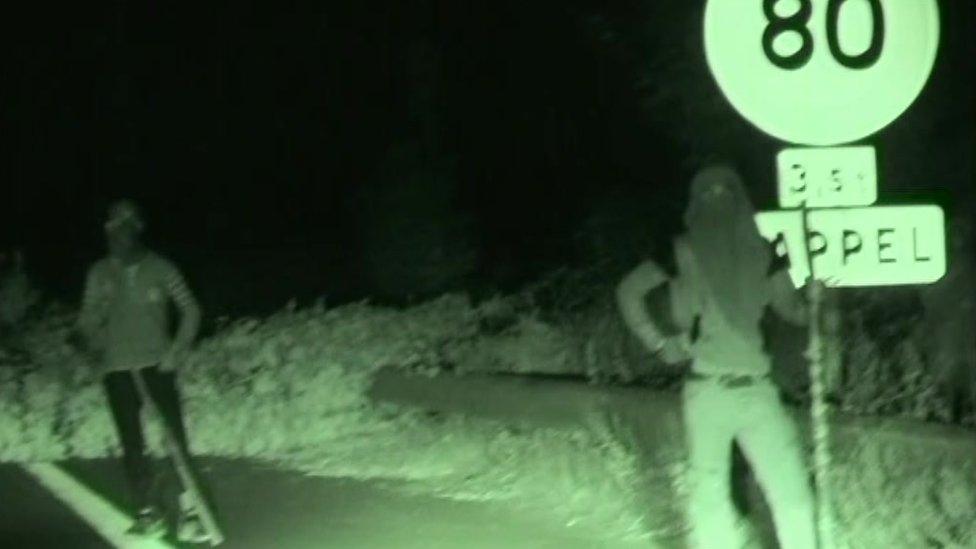Calais blockade: Protest targets migrant Jungle camp
- Published
A long line of tractors and lorries brings traffic to a near-standstill near the Eurotunnel entrance in Calais
Lorry drivers and farmers are blockading the main motorway route into Calais in a protest calling for the closure of the town's migrant camp.
Local traders and trade unions are also taking part and cross-Channel travellers are facing disruption.
But the Port of Calais says a diversion has been put in place, external and ferries are operating as normal.
Two convoys of trucks left Dunkirk and Boulogne on the A16 motorway towards Calais on a "go slow".
Farmers in tractors waited on the side of the road to join the convoy.
Meanwhile, in Calais hundreds of protesters carrying banners gathered on the motorway, which is located close to the entrance to the Channel Tunnel and ferry terminals.
Channel Tunnel operator EuroTunnel advised motorists in France heading to Calais, external to follow one of its suggested alternative routes, but says its services are operating to schedule.
P&O Ferries and DFDS Seaways say travellers who are delayed will be put on their next available sailings at no extra cost.
The presence of the camp, say the organisers of the protest, is undermining Calais.
New techniques
The lorry drivers say they have seen increasing threats from organised gangs and migrants, who have been attempting to board vehicles to reach the UK.
Farmers are said to be angry at the destruction of crops caused by the swelling of the migrant camp known as the "Jungle".
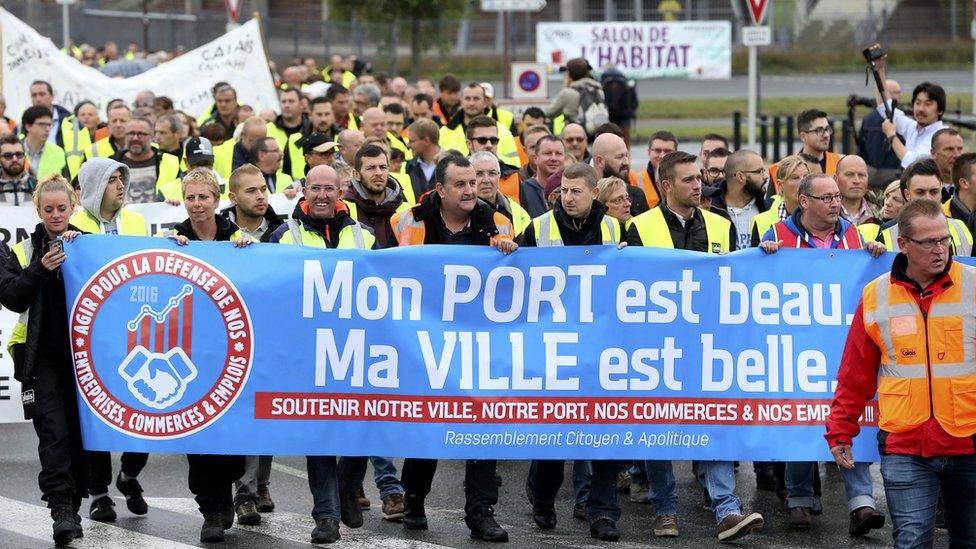
Harbour workers and local traders are also participating in the demonstration
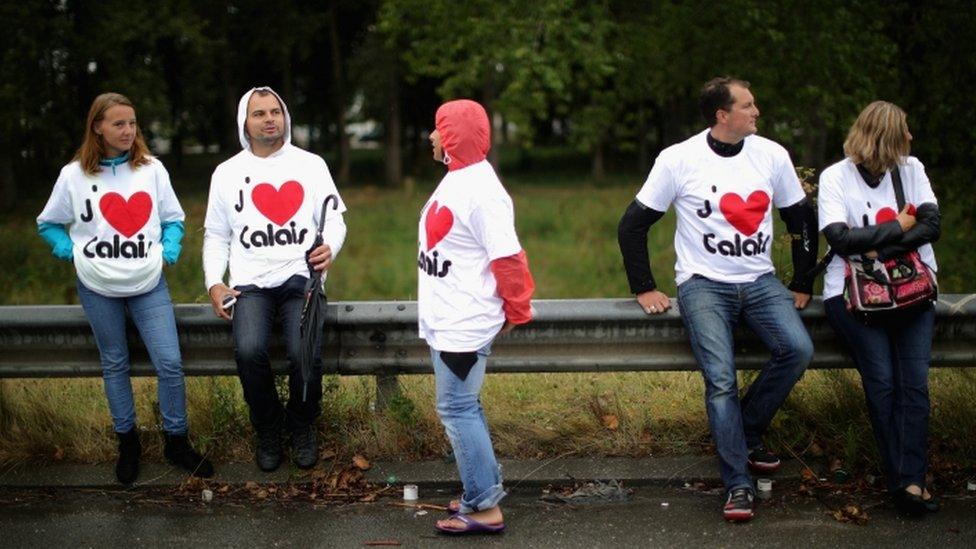
The demonstrators are calling for the closure of the town's migrant camp
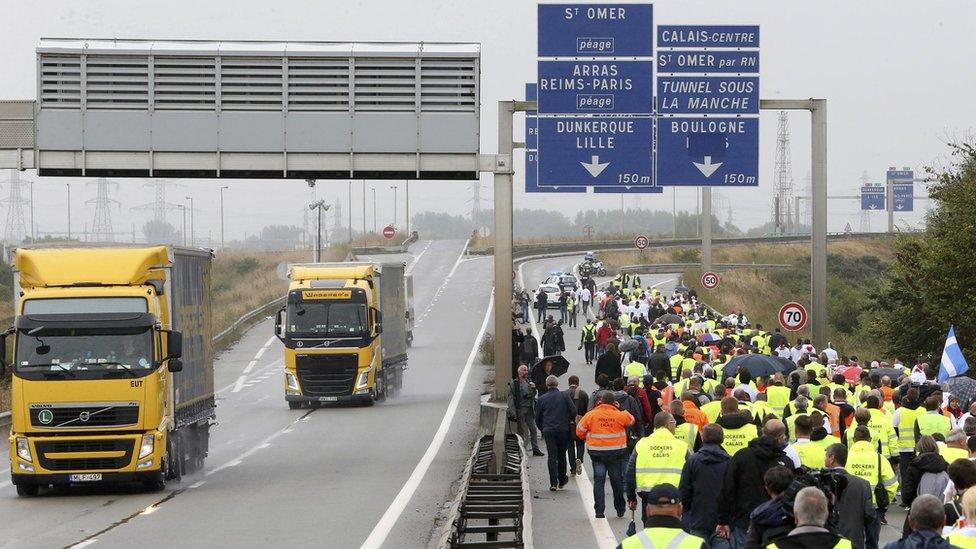
The protesters are marching on the main motorway into Calais
The camp has become the focal point of France's migrant crisis, with about 7,000 people, mainly from the Middle East, Afghanistan and Africa, living there.
BBC News correspondent Richard Galpin says one asylum seeker from Sudan has said he is saddened by the way local people view the camp, saying all they want is to live in peace after escaping from conflict.
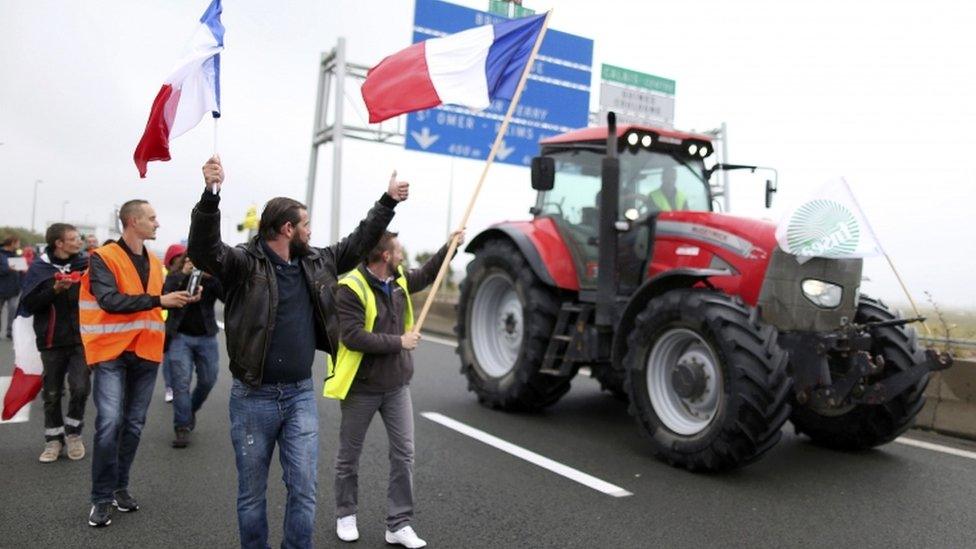
The lorry drivers say they have seen increasing threats from organised gangs and migrants
In recent weeks there have been reports of criminal gangs adopting new techniques to try to get migrants into the UK.
The Mail on Sunday said a log was thrown at a car carrying its journalists, external last week in a deliberate attempt to make them crash, to try to divert attention away from migrants boarding vehicles.
And last month the BBC broadcast footage of suspected people smugglers blocking the main route to Calais with a felled tree and threatening motorists with violence.
'Change of tactics'
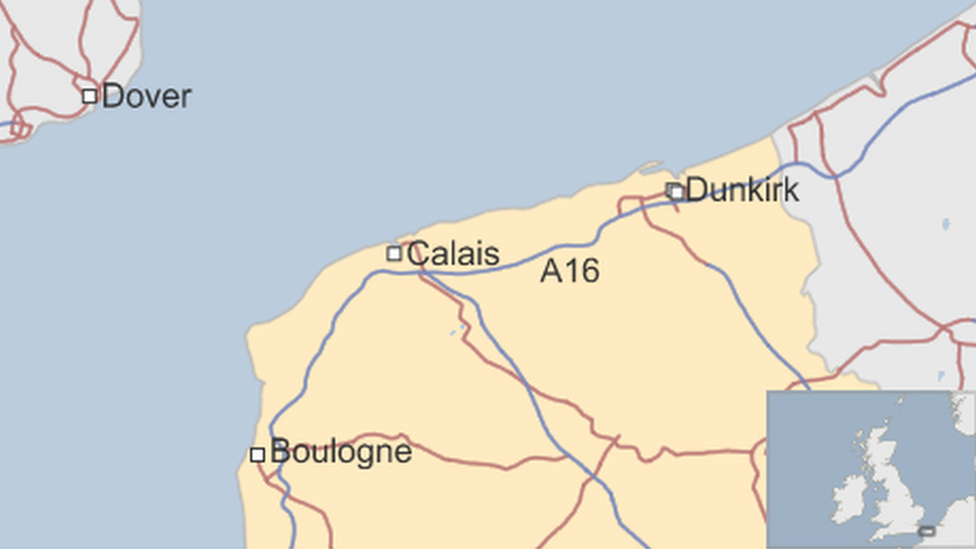
Convoys from Dunkirk and Boulogne were planned to converge at Calais
Jean-Pierre Devigne from France's largest trucking union, the FNTR, told BBC Radio 4's Today programme the protesters were "determined to show to the people we are not happy with the situation" and wanted the camp to be closed.
On Thursday, Mayor of Calais Natacha Bouchart said the blockade would cause "chaos" for British travellers.
"We will stay the time we need," says truck union leader Jean Pierre Devigne
Richard Burnett, chief executive of the Road Haulage Association (RHA), said traffic crossing from the UK would find it "almost impossible" to leave the port without access to the A16.
Speaking on Today, Mr Burnett said: "We are very concerned about the impact and as we saw last year... the chances are, if this blockade actually backs the port up, then it will strangle the port and we will see implications back on British soil as well."
He said there were "insufficient resources" in place to protect British lorry drivers but he sympathised with the protesters and agreed there needed to be "demonstrable plan" that shows the camp will be dismantled.

In February authorities demolished a large area of the southern part of the Jungle, in an attempt to reduce numbers, but the size of the camp has been steadily increasing, according to estimates, and now protesters are calling for the northern area to be dismantled.
French Interior Minister Bernard Cazeneuve said on Sunday that the government still intended to shut the camp.
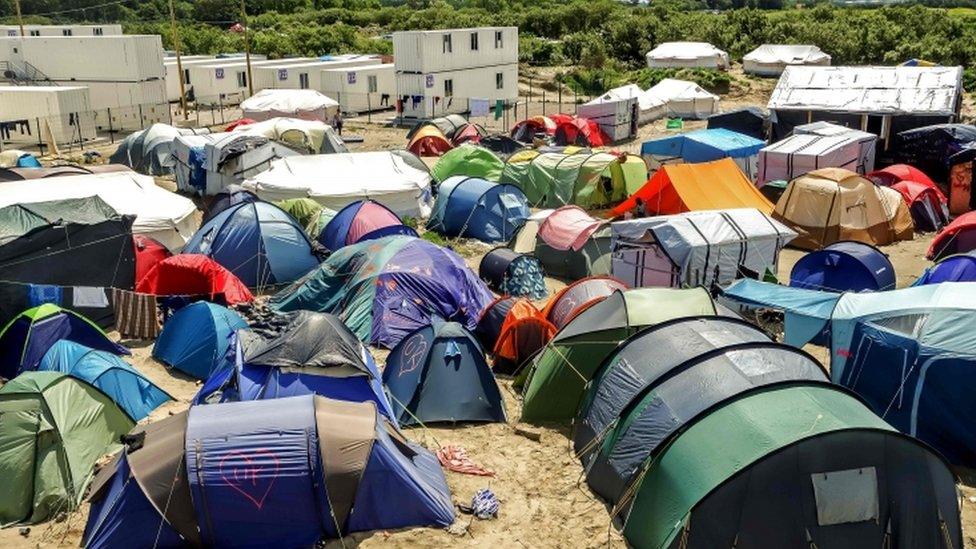
About 7,000 people are thought to live in the Calais camp known as the Jungle
But the president of the Association of Calais Traders was quoted in a number of papers, external as saying: "We are changing our tactics after using soft methods and obtaining nothing but promises from the state that it is giving priority to the wellbeing of the migrants over those of traders, port workers, hauliers, tourists and farmers.
"We will not budge from the motorway until the state gives us the dates for the total demolition of the northern zone of the Jungle."

Has your journey been affected by the blockade? Are you taking part in the demonstrations? You can share your comments by emailing haveyoursay@bbc.co.uk, external.
Please include a contact number if you are willing to speak to a BBC journalist. You can also contact us in the following ways:
WhatsApp: +44 7525 900971
Send pictures/video to yourpics@bbc.co.uk, external
Tweet: @BBC_HaveYourSay, external
Text an SMS or MMS to 61124 (UK) or +44 7624 800 100 (international)
- Published5 September 2016
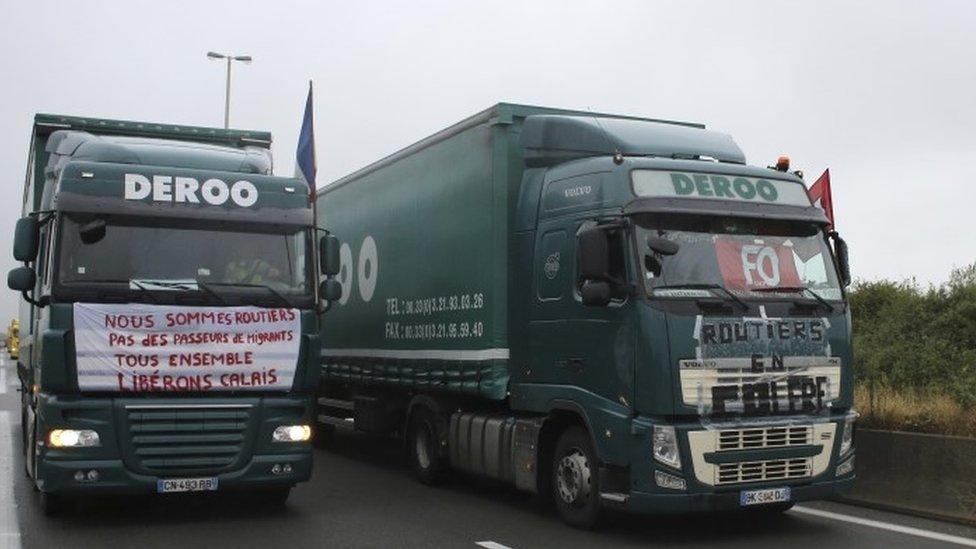
- Published5 September 2016
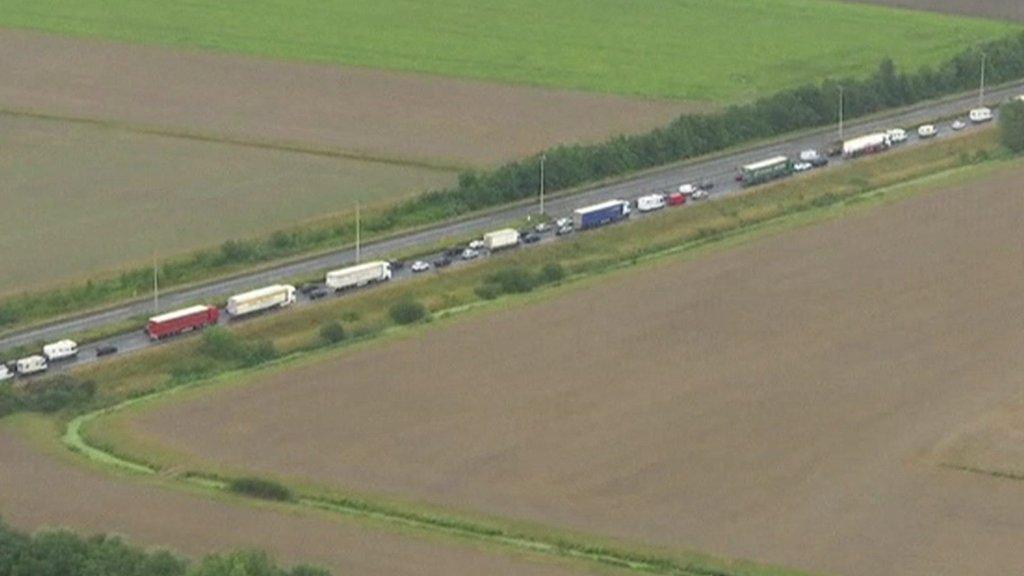
- Published1 September 2016
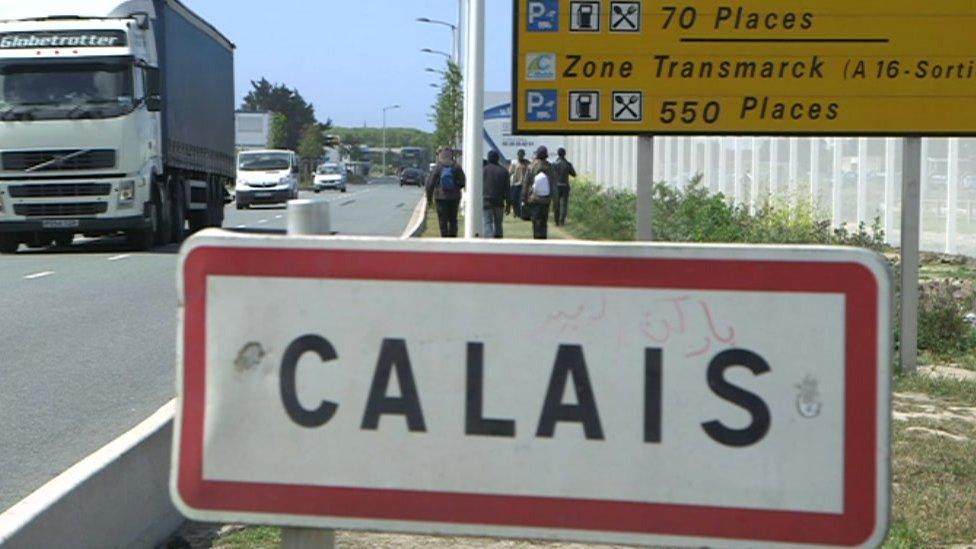
- Published30 August 2016
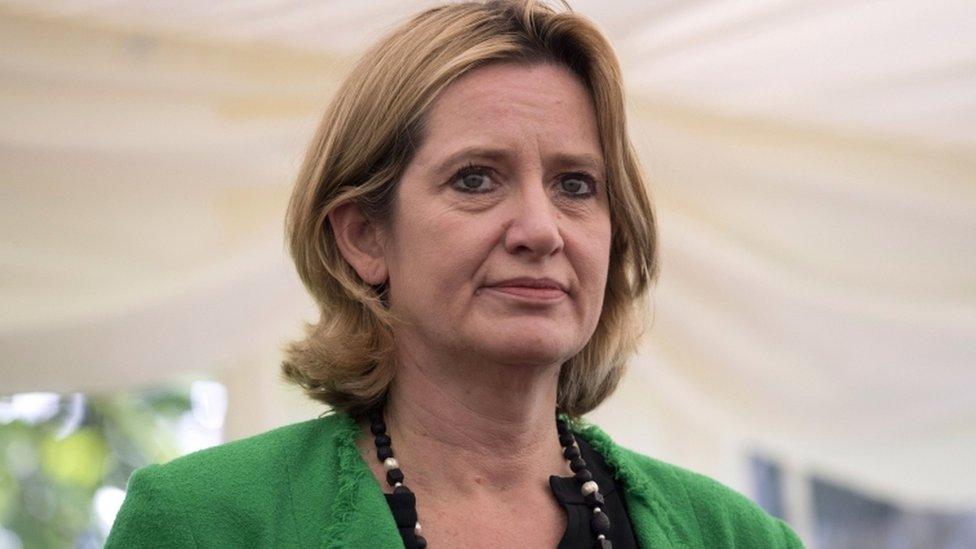
- Published25 August 2016
